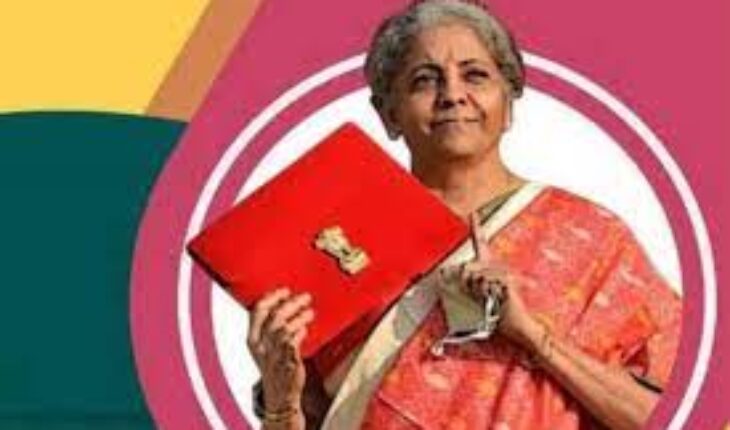
With the advent of the new year, the curiosity about the financial budget of the coming year also increases a lot in every person. The wait for the upcoming financial budget in February, for the financial year 23-24, has begun. Various speculations are being made and there is an atmosphere of inquisitiveness as the economy has made a rapid recovery after the financial disaster due to pandemic.
On the other hand, during the current financial year, we have also achieved some big milestones, in which being among the fifth largest economy in the world in terms of GDP rate is at the top. At present, the economic level of the Indian economy is slightly less than 4 trillion US dollars, but interesting thing is that Germany and Japan are slightly above this level. Therefore, the budget for the upcoming financial year is creating more curiosity and excitement, to know all the provisions that will make us the third largest economy in the world.
Under the democratic system, foresightedness is always necessary in economic policies. Fiscal budget is a combination of economic policies that lays the foundation stone for the economic development of the present as well as future generations. On the basis of economic analysis, a cause of concern emerging these days is that the level of fiscal deficit, fixed under the current financial year 2022-23 ,may rise. It may be noted that a financial deficit of 6.4 percent was proposed in the financial budget for the year 2022-23, but under the just concluded winter parliamentary session, the supplementary demands for a financial grant of more than 3,00,000 crores have been passed by the Parliament. Behind this grant is the increase in subsidy on crude oil, fertilizers and rural development schemes. The thought also comes now how will our country reach the proposed fiscal deficit of 4.5 percent by the financial year 2024-25 ?
However, during the current financial year, various global issues have also been the main reason behind this, in which the increase in the price of crude oil due to the on-going war between Russia and Ukraine is the prime reason. Consequently, the import bill increased continuously which also increased the inflation in the domestic market. Due to this, the supply of fertilizers was also disrupted. Another factor is that the economic side effects of Corona are still present in the rural economy to some extent, due to which the financial expenditure on MNREGA scheme also increased from the proposed expenditure under the budget.
On the other hand, extending the deadline for distribution of free ration till next December under the scheme of rural development ,has also been a major factor.
In this context, it is also very important to clarify that even if the economy goes above the limit of fiscal deficit proposed under the fiscal budget 22-23, India will not see any panic in the level of economic development because India is now being recognized as an economy that is not immediately affected by the global crisis. The purchasing power of India’s middle class society and constant supervision of banking policies is very strong. In this context, the figures in the report of the Comptroller and Auditor General of India (CAG) show that the direct tax collection figure is very good and it is about 25 percent higher than the previous financial year. On the other hand, about 55 percent of the amount proposed by the government for capital expenditure has already been spent on various schemes till the month of October, which is 10 percent more than the previous financial year. Although this figure is a bit surprising considering the fact that India has not seen corona crisis in the current year due to massive vaccination, and hence the percentage of capital expenditure should have been comparatively much higher by now. This could have resulted an increase in the availability of employment opportunities, which has not happened.
It is also very important to clarify that if the Indian economy goes above the proposed fiscal deficit, then it will have to move towards financial loans and financial borrowings. Its direct impact can be seen in the form of reduction in capital expenditure. Due to financial debt, the cost of interest increases, which is definitely not proposed in the budget and it is lost somewhere in the economic policies by reducing the amount allocated for capital expenditure. Apart from this, government has to keep the rate of interest comparatively higher for the amount received from different types of bonds so that the public can be attracted more and more. Apart from this, in such a situation, private financial investment in the economy also starts shrinking. As a result, there is a double set backs on the economic policies whose direct side effect is seen in the form of increase in inflation and unemployment rates. It is necessary that the fiscal deficit under the fiscal budget should be proposed with great foresight.
Under every financial budget, every person has some expectations from the government for his economic standard of living. But it is also a fact that the government proposes the budget with foresightedness. However, it is necessary to mix populist politics in between. On the basis of economic analysis, if some priorities are fixed in the context of the upcoming financial budget, then the first priority will be to increase the minimum financial limit of income tax so that a small income tax payer can have some amount of money as financial savings. This is also very relevant because where GST has increased tax collection in the economy, its direct impact is falling on a common consumer through almost everything. Under the second priority, it is very important to speed up the rural economy and for this, the percentage of capital expenditure in the construction or construction sector will have to be kept high, due to which the demand for essential commodities will also increase. Under the third priority, the manufacturing sector will have to be made more and more competitive in quality and cost so that a new reputation is developed at the global level. In this context, change in banking policies is also very necessary and under the “PLI” scheme, priority will have to be given to such industries where the capital requirements are relatively high. Apart from this, encouraging the manufacturing sector through financial benefits for the creation of maximum employment should also be included in the economic policies. Under another priority, new types of infrastructure development bonds should be included in various schemes of financial investment so that taxpayers can invest in them to save their tax amount. Its direct benefit will be in the form of domestic deposits in the form of necessary financial investment for infrastructure development. As a result, the economic burden of the government will be reduced because the government is not the only engine for financial investment, the participation of the private sector is also equally important.
Dr. P.S. Vohra , Academician, Financial Thinker & Newspaper Columnist , Views are personal





